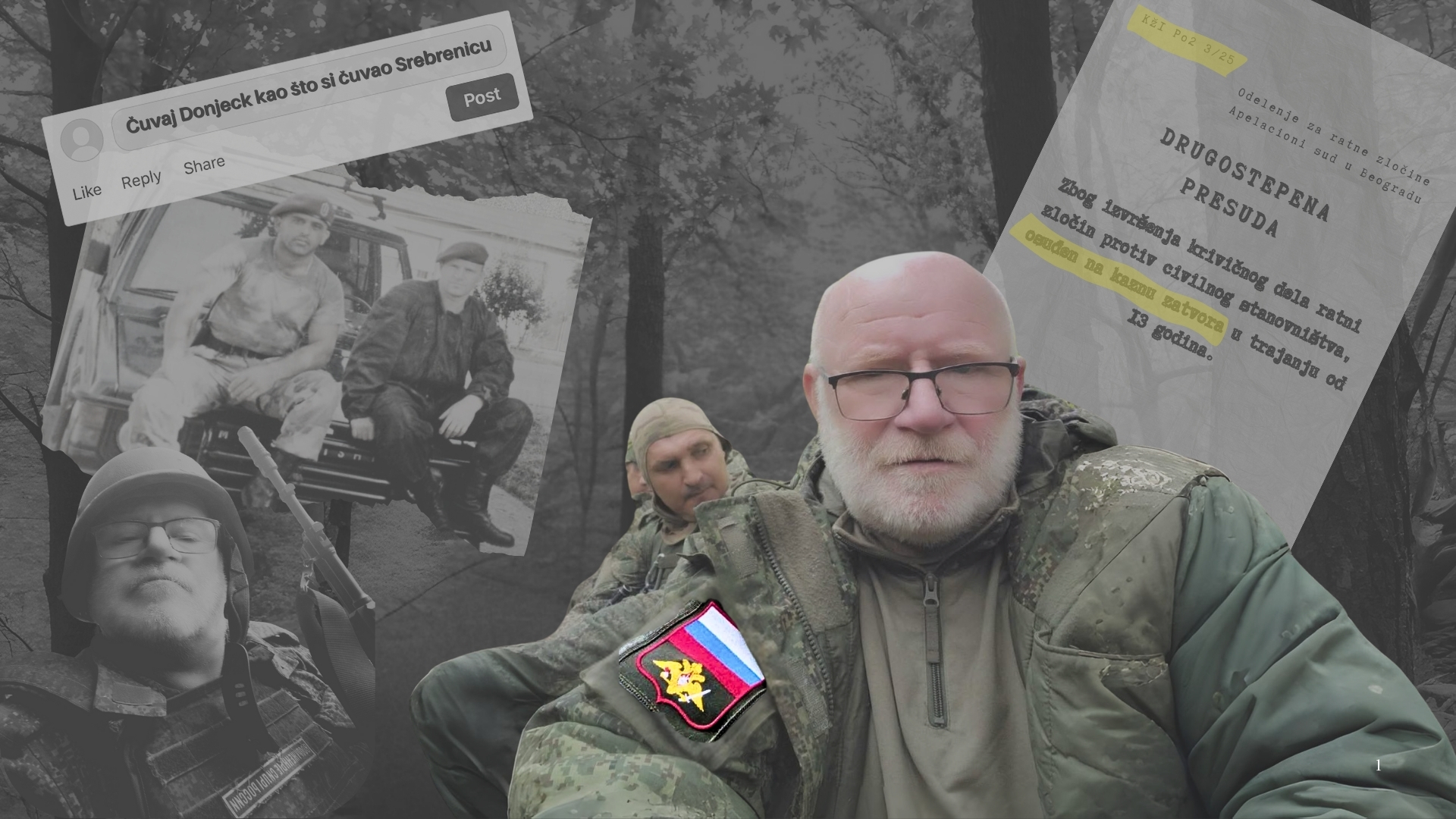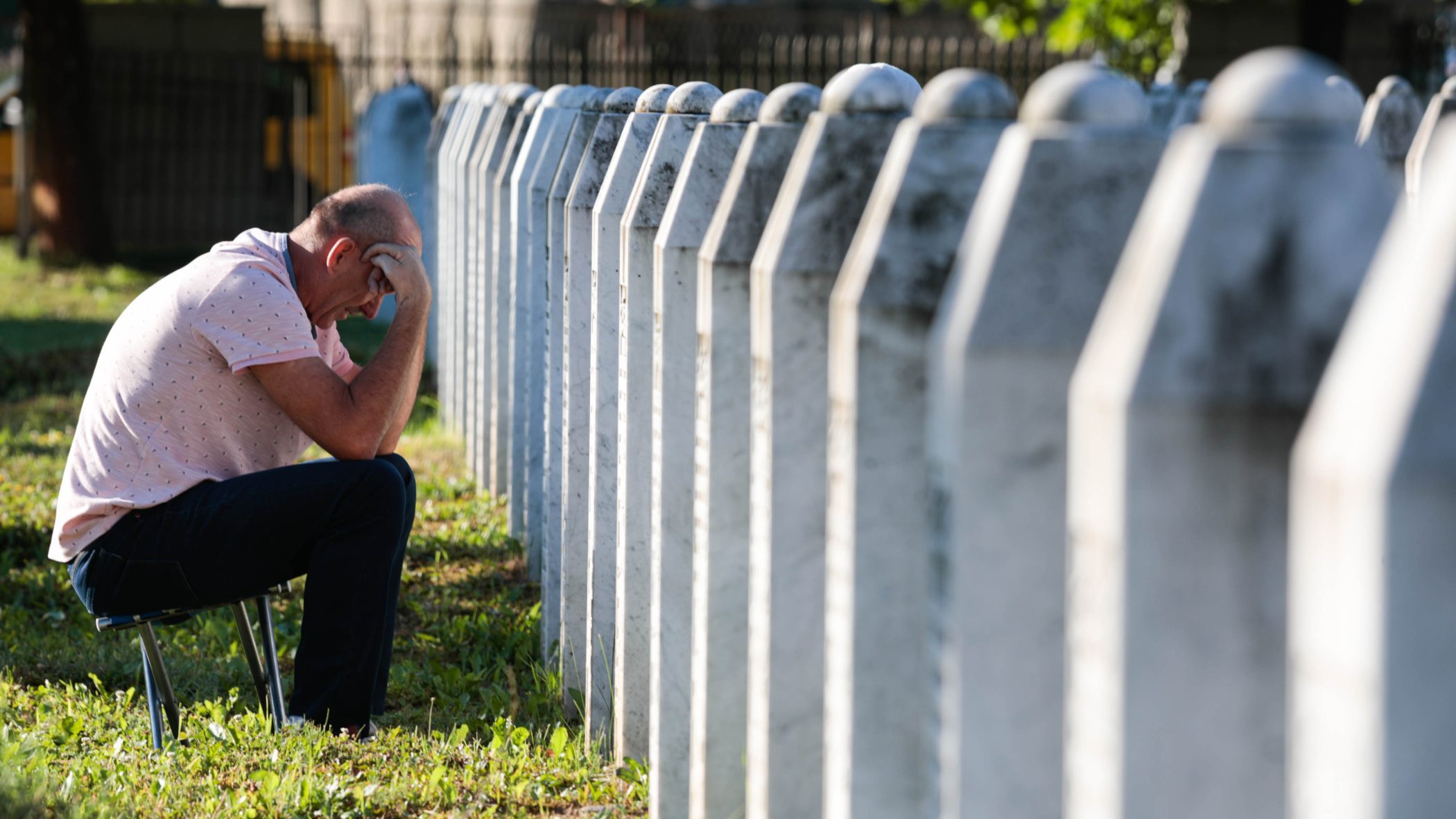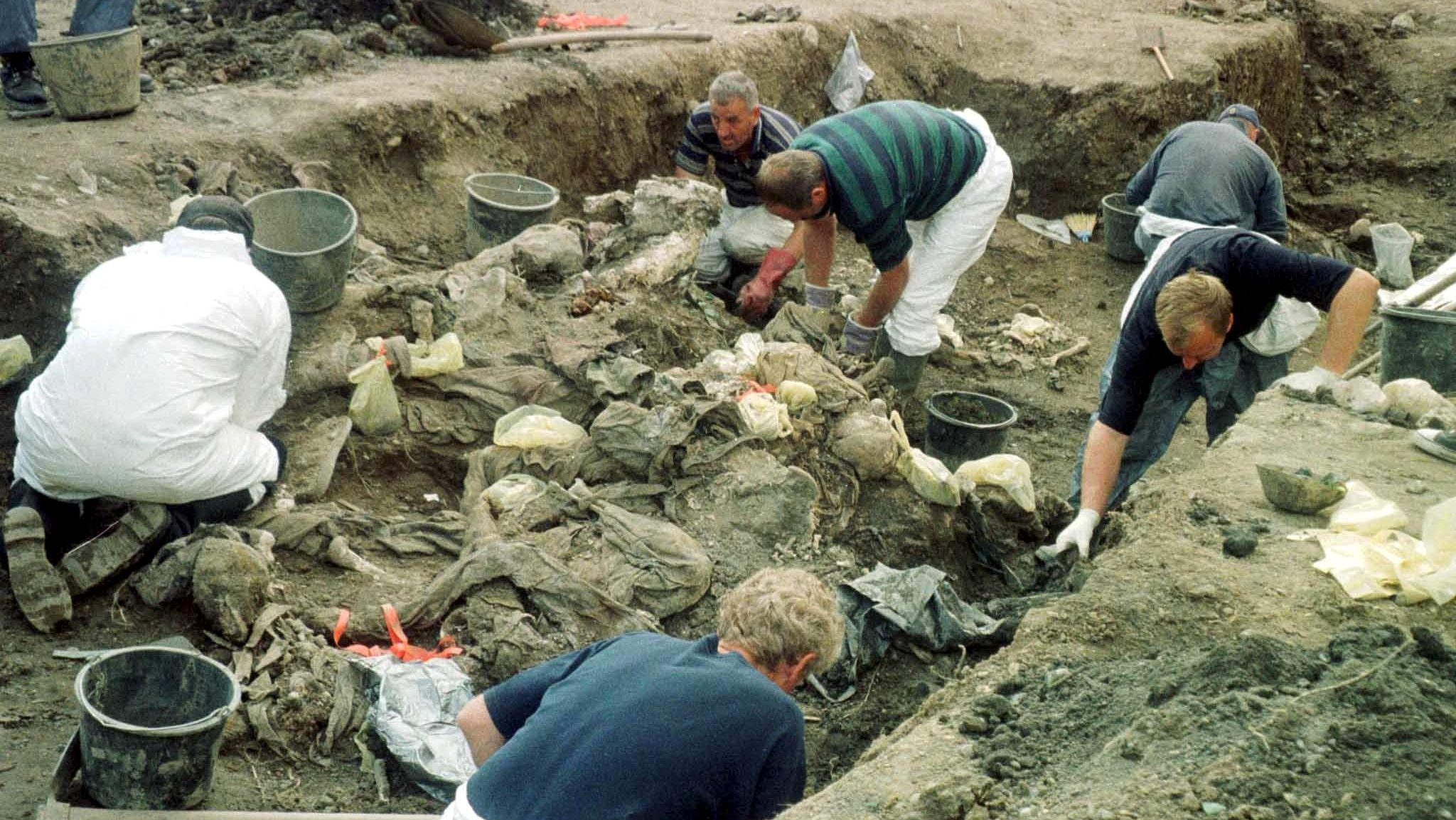This post is also available in: Bosnian
Lawyers in Bosnia are divided over the practice of lodging testimonies of war-crime trials witnesses who have since died.
Because 20 years have now passed since the end of the 1992-5 war in Bosnia, more and more testimonies of deceased witnesses are being read out at war crimes trials before the Court of Bosnia and Herzegovina.
Some say the deaths of the witnesses should not be seen as any impediment, while others say the practice is unfair to indictees.
Lawyer Radivoje Lazarevic says the effective benefit of such testimonies is small as defence attorneys cannot examine dead witnesses.
Judicial institutions for their part say all evidence taken lawfully is evaluated in comparison to other evidence and, in sentencing, it is explained why trust is placed in it, or not.
“We can have the testimony of a deceased witness who, in the investigation recounted an event in detail, and we can have three living witnesses who indirectly have information about the event – so all of them will be appreciated altogether,” Dalida Burzic, judge of the Cantonal Court in Sarajevo, explained.
Victims groups say the deaths of witnesses can seriously affect the prosecution of a war crime, and judicial institutions must resolve the issue.
“If a victim has suffered, the person who did this should be punished, and judicial institutions should solve this problem,” Murat Tahirovic, from the Association of Victims and Witnesses of Genocide in Bosnia and Herzegovina, said.
Value of a deceased person’s testimony:
Judge Burzic explains because war crimes have no expiry date, the Criminal Code of the Federation of Bosnia and Herzegovina allows the testimonies of deceased witnesses who previously gave them to a prosecutor or investigating authorities to be read out in court.
Thus, a verdict may be based on the testimony of deceased witnesses along with accompanying additional evidence.
“To us as judges, a single item of evidence has no predetermined legal value,” he notes.
“Nor have we a rule by which the testimonies of witnesses are rated, including statements of deceased witness.
“Each proof is evaluated individually and in relation to others. It all depends on the specific situation and is called ‘the principle of free evaluation of evidence,’” Judge Burzic told BIRN.
Lawyer Jusuf Halilagic shares that opinion, and explains that while the testimony of deceased witnesses has less weight than that of a live witness, with the other attached evidences, it still has value.
Lazarevic says that, in most cases, the testimony of a deceased witness does not have great impact on the verdict.
“Testimonies of deceased witnesses are problems in war-crime cases,” he says.
“Biology does its own thing and witnesses die, and lodging such testimonies prevents us from organizing the defence in a fair and honest way,” Lazarevic adds.
During the trial of Veselin Vlahovic for crimes committed in the Sarajevo neighbourhood of Grbavica, Lazarevic notes that the Prosecution of Bosnia and Herzegovina filed 16 testimonies of deceased witnesses to which the defence objected, citing its inability to cross-examine them.
In a first-instance verdict, the Court of Bosnia and Herzegovina jailed Vlahovic for 45 years.
According to criminal law in Bosnia and Herzegovina, lodging such testimonies is allowed on the motion of one of the parties, with a proviso that they must be accompanied by proof that the person has deceased.
Judge Burzic says that in war-crimes cases, all witnesses are like gold dust, since verdicts are based on their statements and testimonies.
At the same time it is crucial that witnesses previously testified in a legal manner, and therein lies a great responsibility for the prosecutor.
“In war-crimes cases, when witnesses who are deceased did not testify before the relevant authorities in such a manner… we lose such witnesses, because a judge cannot accept the minutes from such an investigation,” Burzic notes.
Precedent of WW2 war crime trials:
Lazarevic believes the testimonies of deceased witnesses have far less weight than testimonies of living witnesses, and can end up reducing the sentence for indictees charged with war crimes.
It is an objective problem that is difficult to overcome, he adds.
Judicial institutions say the statements of deceased witnesses should not be seen as offering hope to indictees.
“There is constant conflict between law and justice. Lots of things are according to the law, but are not just. As a judge, I believe it would be unjust to not use these statements to prove crimes of certain defendants”, says Burzic.
Victims groups meanwhile say courts in Bosnia and Herzegovina need to learn from the practice of punishing war criminals from World War II.
“Some perpetrators of crimes from World War II were punished when they were 90, when few witnesses to these crimes were still alive at the trial, but when there was still enough evidence in the file taken from people to punish them for their terrible acts,” Tahirovic said.
The indisputable fact is that war-crimes trials take time, and, as time passes, the number of deceased witnesses will surely increase.
“There will be more and more situations where you will have to read out the testimonies of witnesses that were taken previously, and the court will have… have decide on that and bring a verdict,” Halilagic says.
Generally, once most witnesses to Bosnia’s war crimes have died, Burzic says the law will have to offer a solution.
“The political will of legislators must be such as to complete cases, and ensure victims compensation. It has to be done. These things cannot remain unresolved,” Burzic says.



